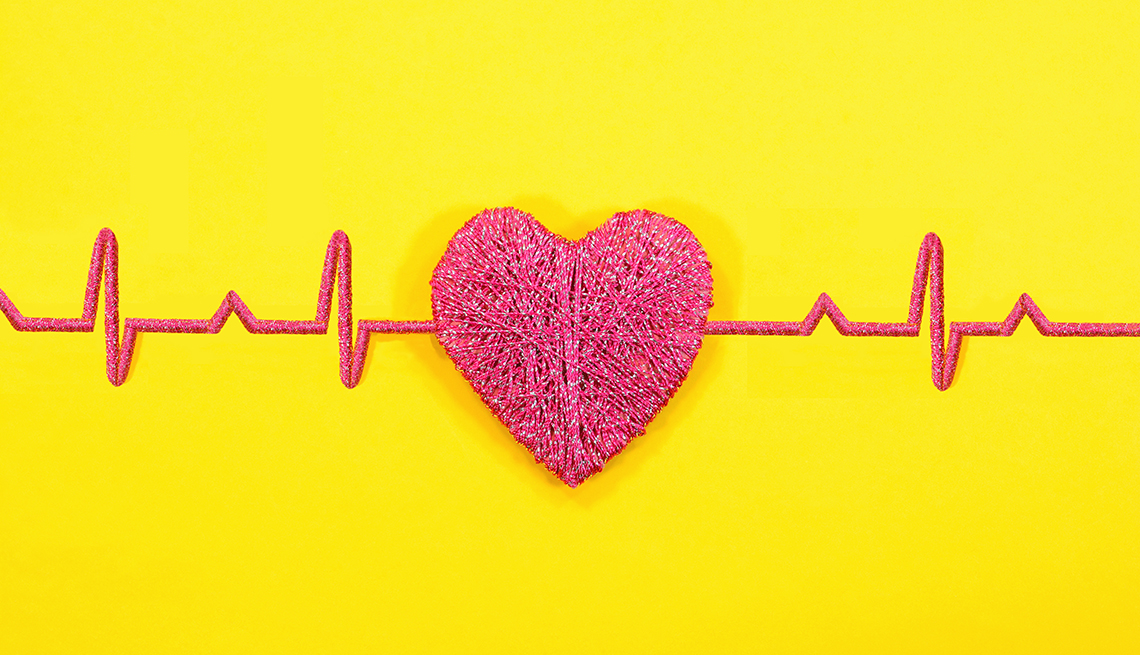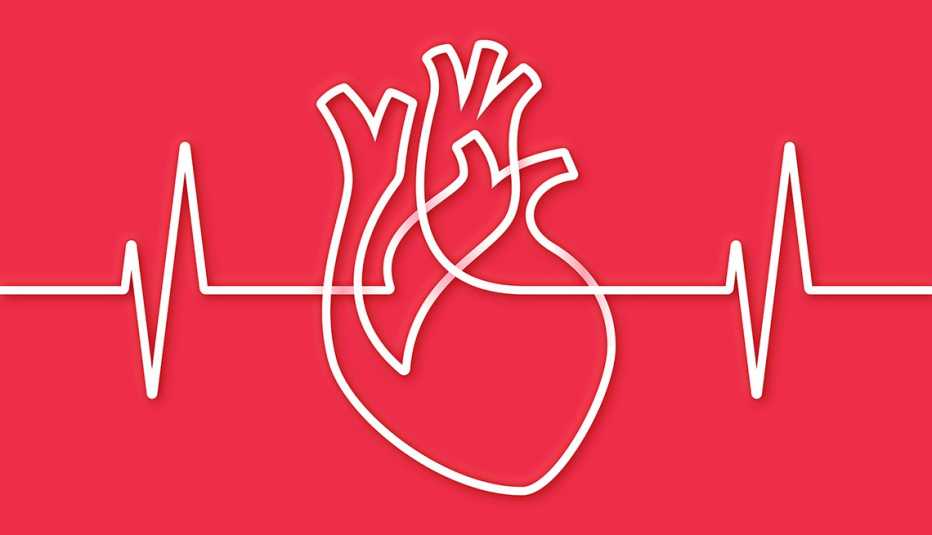Staying Fit
You probably already know several key numbers about your health: your weight, your blood pressure, your cholesterol and blood glucose levels, and possibly even your waist circumstance. But there’s another one that you should add to your list: your heart rate.
"If it’s too low, or too high, it can indicate heart problems,” says Michael LaMonte, research professor of epidemiology and environmental health at the University of Buffalo School of Public Health and Health Professions and spokesperson for the American Heart Association. “But it can also be tricky, since your heart rate can be impacted by a lot of different things, including environmental conditions such as heat, humidity or cold.” Here’s a look at what an ideal heart rate is, and what a rate too high or too low may mean for you.


AARP Membership— $12 for your first year when you sign up for Automatic Renewal
Get instant access to members-only products and hundreds of discounts, a free second membership, and a subscription to AARP the Magazine.
So, what’s your ideal heart rate, really?
The American Heart Association says anything between 60 and 100 beats per minute at rest is considered normal. But on the lower end is better — it means that your heart muscle is in better shape, so that it doesn’t have to work as hard to beat regularly, says cardiologist Nieca Goldberg, M.D., medical director of Atria NYC and clinical associate professor of medicine at the NYU Grossman School of Medicine. Research shows, for example, that men with a resting heart rate of over 90 beats per minute had three times the risk of death from any cause compared to men whose heart rate was less than 50.
Heart rate by the numbers
Resting: 60 and 100 beats per minute
Athletes: may have a lower resting heart rate
Moderate workouts: 50%-70% of the maximum for your age
Intense workouts: 70%-85% of maximum for your age
Maximum heart rate: about 220 minus your age
Source: American Heart Association
That’s why some cardiologists say that the lower, the better. “I consider a normal heart rate to be between 45 and 85 beats per minute,” says Walid Saliba, M.D., a cardiologist and director of the Electrophysiology Lab at the Cleveland Clinic. “If you’re sitting and not doing anything, a heart rate of 100 beats per minute is abnormal.” On the flip side, he adds, if you’re athletic and very well-conditioned, there should be no alarm bells ringing if your resting heart rate is just 45 bpm. (Lance Armstrong reportedly once had a resting heart rate of only about 32 bpm.)
What does a heart rate too fast or too slow mean?
If you’re not an uber athlete, your doctor will most likely want to investigate why your heart rate is too fast or too slow. There are a few medical reasons your heart rate may be high, Saliba says. They include:
• Thyroid disease. If you are hyperthyroid, which means your body produces too much thyroid hormone, your heart will beat harder and faster, and you may experience abnormal heart rhythms.
• Anemia. Anemia, or low blood iron, rises with age: About 7 percent of men and women ages 65-74 have it, as do about 40 percent of men and 22 percent of women over age 85. The iron is needed to transport oxygen throughout the body. When you have anemia, your heart pumps more blood to make up for the lack of oxygen in it, Saliba says.







































































